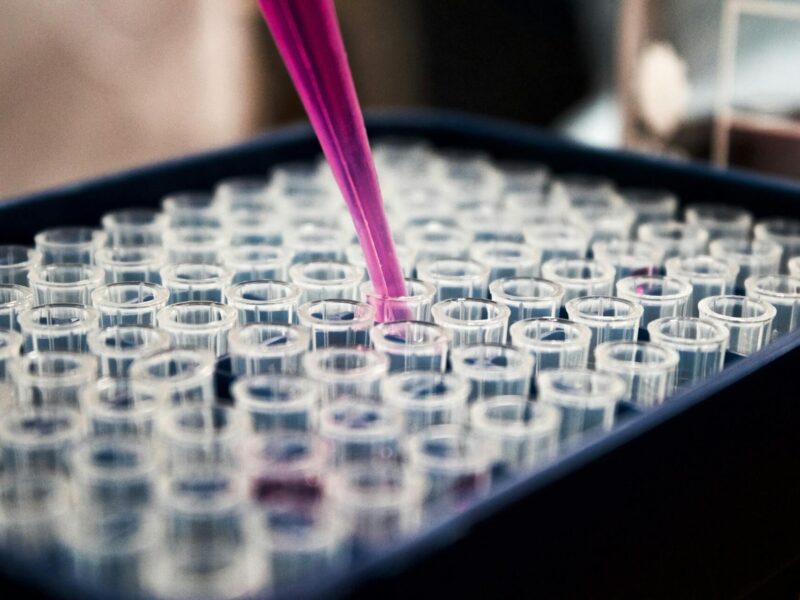The intersection of technology and healthcare has always been a fertile ground for innovation. However, the current era is unique in its potential to revolutionize how we understand and treat diseases. Personalized medicine is one such promising frontier, and advancements in technology are making this a reality faster than anyone could have anticipated. This blog post explores how technology is enhancing personalized medicine and what it means for healthcare professionals and tech enthusiasts alike.
As advancements in technology continue to reshape the landscape of healthcare, personalized medicine stands at the forefront of this revolution. With the integration of data analytics, artificial intelligence, and genomic sequencing, healthcare professionals can tailor treatments to individual patients, leading to improved outcomes and enhanced patient satisfaction. For instance, obstetricians can now better predict potential complications during pregnancy by analyzing patient-specific data. Those interested in contributing to this innovative field may explore exciting obstetrician jobs that leverage these technological advancements. For more details, check out the job listings obstetrician jobs.
Understanding Personalized Medicine
Personalized medicine, also known as precision medicine, is a medical model that tailors healthcare treatments to individual characteristics of each patient. Unlike the one-size-fits-all approach of conventional medicine, personalized medicine takes into account factors like genetics, lifestyle, and environment to create more effective treatment plans. This approach aims to optimize therapeutic efficacy and minimize side effects, offering a more targeted strategy for disease management.
The Role of Technology in Personalized Medicine
1. Advanced Genomics
Genomics—the study of an organism’s complete set of DNA—has made significant strides thanks to technological advancements. The Human Genome Project, completed in 2003, was a monumental step that paved the way for more accessible and affordable genomic sequencing. Today, technologies like CRISPR and next-generation sequencing (NGS) allow for rapid and precise editing and analysis of genes.
Key Technologies:
- CRISPR: Clustered Regularly Interspaced Short Palindromic Repeats enable the editing of specific genes with unprecedented accuracy.
- Next-Generation Sequencing (NGS): Allows for the rapid sequencing of entire genomes, making it feasible to integrate genomic data into personalized treatment plans.
2. Artificial Intelligence (AI) and Machine Learning (ML)
AI and ML are transforming personalized medicine by enabling the analysis of vast amounts of data to identify patterns and predict outcomes. These technologies can analyze genetic information, medical histories, and even lifestyle data to recommend tailored treatment options.
Key Applications:
- Predictive Analytics: AI algorithms can predict the likelihood of disease development based on genetic and environmental factors.
- Drug Discovery: Machine learning models can analyze complex datasets to identify potential drug candidates more quickly and efficiently than traditional methods.
3. Big Data and Data Analytics
The sheer volume of data generated in healthcare from electronic health records (EHRs) to wearable devices—offers a treasure trove of information. Big data analytics can sift through this data to identify trends, correlations, and insights that inform personalized treatment plans.
Key Tools:
- Electronic Health Records (EHRs): Provide comprehensive patient histories that can be analyzed to identify personalized treatment options.
- Wearable Devices: Track real-time health metrics like heart rate, activity levels, and sleep patterns, providing valuable data for personalized healthcare.
4. Telemedicine and Mobile Health (mHealth)
Telemedicine and mHealth technologies are making personalized medicine more accessible. Patients can now consult with healthcare professionals from the comfort of their homes, providing real-time data through mobile health apps and wearable devices.
Key Benefits:
- Accessibility: Allows patients in remote or underserved areas to access specialized care.
- Real-Time Monitoring: Enables continuous monitoring and adjustments to treatment plans based on real-time data.
Impact on Healthcare
The integration of technology into personalized medicine is transforming healthcare in several key ways:
Improved Patient Outcomes
Personalized treatment plans can lead to better patient outcomes by targeting therapies that are most likely to be effective for each individual. This not only improves efficacy but also reduces the risk of adverse effects.
Cost-Effectiveness
While the initial investment in technologies like genomics and AI can be high, personalized medicine can ultimately reduce healthcare costs by minimizing trial-and-error treatments and preventing complications.
Enhanced Preventive Care
Predictive analytics and genomic data can identify individuals at high risk for certain diseases, enabling early intervention and preventive measures. This shift from reactive to proactive care can significantly improve health outcomes.
Increased Patient Engagement
Personalized medicine empowers patients by involving them in their own care. With access to their health data and personalized treatment plans, patients are more likely to engage in their health and adhere to treatment recommendations.
Challenges and Future Directions
While the potential of personalized medicine is immense, there are challenges to overcome, including data privacy concerns, ethical considerations, and the need for standardized protocols. Collaboration between healthcare providers, technologists, and regulatory bodies will be crucial in addressing these challenges.
Ethical and Privacy Concerns
The use of personal genetic information raises ethical questions about privacy, consent, and data security. Robust safeguards must be put in place to protect patient information.
Standardization and Integration
For personalized medicine to become mainstream, there needs to be a standardized approach to data collection, analysis, and integration across different healthcare systems.
Continued Innovation
Ongoing research and development are essential for the continuous improvement of personalized medicine. Emerging technologies like quantum computing and blockchain hold promise for further advancements in this field.
Conclusion
The convergence of technology and personalized medicine is redefining the landscape of healthcare. By leveraging advancements in genomics, AI, big data, and telemedicine, personalized medicine offers a more targeted, efficient, and effective approach to healthcare. For healthcare professionals and tech enthusiasts, staying abreast of these developments is crucial as we move towards a future where personalized medicine becomes the norm rather than the exception.
As we continue to explore this exciting frontier, one thing is clear: the future of medicine is personal, and technology is the key to unlocking its full potential.






